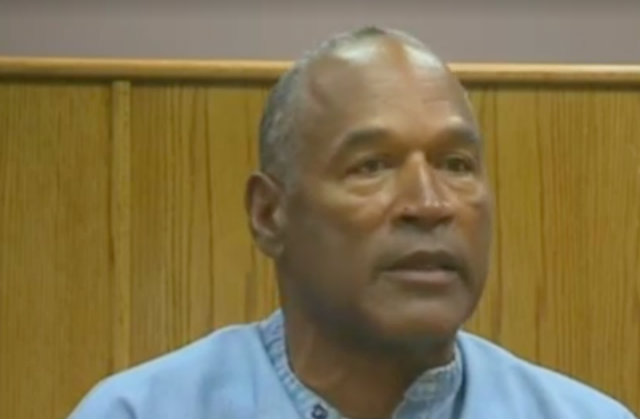
O.J. Simpson got out of a Nevada prison on Sunday, and though he has plans on returning to Florida, the state’s attorney general wants nothing to do with him, and is working to keep him out of there. But here’s the thing: the decision is out of both of their hands. Nonetheless, the law gives him some leverage.
Simpson served nine years out of a possible 33-year sentence for a Las Vegas armed robbery after a parole board tapped him for release in a July decision . At the hearing, he said he’d return to Florida–that’s where he moved to from California in 1999. At the time, The Florida Department of Corrections told NBC News that they knew that he might return, and they said he would be assigned to a probation officer if he did. Institutional resistance to his relocation didn’t become high-profile until Friday, when Florida Attorney General Pam Bondi wrote a letter to the FDC, urging them to stop this.
That’s a real possibility. For now, Simpson remains in Nevada, but he is under supervised release for up to 5 years. He can’t leave the state, or move to another, without permission. That process is handled by the Interstate Commission for Adult Offender Supervision. Basically, Nevada officials have to ask Florida if he can move, and Florida has to approve.
Bondi demanded that the FDC keep Simpson’s history in mind when making their decision. She mentioned his 1989 no contest plea to abusing then-wife Nicole Brown Simpson, and the 1997 civil judgment “entered against him for the wrongful deaths” of Brown and Ronald Goldman. The AG also cited other, less well known misbehavior by the former Buffalo Bills running back. This includes getting fined in 2002 for speeding a boat through a manatee zone, and being ordered by a federal judge in 2005 to pay $25,000 for pirating DirecTV cable signals. She said he showed no remorse for wrongdoing.
But as Bondi mentions in her letter, the FDC can still let Simpson into the state under Rule 3.101 of the Interstate Compact.
This rule gives him leverage: it requires the receiving state (in this case Florida) to accept a transfer if the offender has resident family there who is willing to assist in the parolee’s plan of supervision. The offender must also be able to get a job there or find some other way to support himself.
Well, Simpson had two children with Brown. Now adults, they both seem to be successful, and reportedly own their own homes in St. Petersburg. They keep a low profile, so it’s hard to say what their relationship with their father is like, but it’s within the realm of possibility that at least one of them could get involved in his transfer. As for supporting himself financially, he also has that covered. The former running back for the Buffalo Bills can get a sizable enough pension from the NFL. The law protects this cash from the civil judgment that the Goldman family won in their 1997 wrongful death lawsuit.
The question is whether Nevada submits its transfer request in the first place, and whether any of Simpson’s Floridian relatives are willing to support him in this process. Officials in the Sunshine State said they didn’t receive requests for transfer before his release, according to an NBC report from Sunday.
[Screengrab via LawNewz]